The Catalyst Killing - [11]
The secretary helping me trace Martin Morgenstierne was young and eager, and only a few minutes after I had finished my telephone call, she was standing at my door with the address and telephone number of the bank where Martin Morgenstierne was manager. It was not one of the largest in town, but was well known all the same and had a good reputation.
I rang the bank’s switchboard and said that I was from the police and it was urgent. Then I got straight to the point and asked if they knew where Martin Morgenstierne, the manager, was.
There was silence for a moment, then the switchboard operator replied that the bank manager was in his office, as he always was during office hours unless he had important meetings elsewhere.
It was my turn to be lost for words. But eventually I asked if she could put me through to him.
It was a strange and by no means pleasant experience to hear the bank manager’s calm voice answer with ‘Bank Manager Morgenstierne here.’
I started by saying: ‘This is Detective Inspector Kolbjørn Kristiansen and I am afraid that I have some very bad news for you regarding a personal matter…’
The bank manager’s voice sounded a touch sharper, but his response was just as measured when he asked if I was alluding to the death of his daughter, in which case his secretary had already informed him. She had been told by a friend of his who was an editor and had called to offer his condolences. He did not think that he would have anything of interest to contribute to the investigation as he had unfortunately only had very sporadic contact with his daughter in recent years. That being said, he would of course answer any questions the police might wish to ask.
There was a brief pause when neither of us said anything. I was at a loss as to what to say to a man I had never spoken to before, who had found out only hours ago from his secretary that his daughter was dead and yet had just carried on with his working day as though nothing had happened.
I offered my condolences all the same and assured him that that the investigation would be given the highest priority, then asked if I could meet him as soon as possible. He replied that he had an important meeting in the bank at half past three, but that he should be back home in Frogner by half past five at the latest. I suggested that I should come there at six and he said that would be fine.
I sat deep in thought, with the receiver in my hand and the tone in my ear, after Martin Morgenstierne had put down the phone. The case seemed to be getting more and more convoluted, the more parties I got to know. The investigation was not yet half a day old and it was already clear that it involved several mysteries and a gallery of fascinating characters. I felt a tremendous sense of relief that I had Patricia behind me. And then I started to wonder who it was knocking on my door.
X
This time the door-knocker turned out to be Detective Inspector Vegard Danielsen. I had silently hoped that he was on summer holiday in some faraway place, but now remembered that he never went on holiday at any time of year for fear of missing out on a career opportunity.
He had come primarily to ‘sympathize’ with me about being given sole responsibility for the murder of Marie Morgenstierne, which would no doubt be a very demanding case. Danielsen also wanted to make sure that I knew about the possible connection to Falko Reinhardt’s disappearance, as he himself had led that investigation. I was as friendly as could be, thanked him and assured him that I would be in touch should any relevant questions crop up. However, I had already had the pleasure of reading his written report, which was so informative and detailed that I had everything I needed for the present. He smiled and thanked me and told me that the door to his office was always open, should I need any assistance.
He then added, with the falsest smile, that some potentially good news had just come in. A witness had come forward who had been walking behind Marie Morgenstierne on the way to the station the evening before.
I asked jokingly why he had not brought the witness in with him straight away. He replied that unfortunately there were certain practical problems in connection with the witness, and it would therefore perhaps be best if I came out and met her myself.
I smelt a rat, and asked if the witness was under the influence or indisposed for any other reason. Danielsen cheerily shook his head and said that the witness was a sober and undoubtedly reliable person, but was still, to put it politely, ‘problematic as an eyewitness’. It would perhaps be best if I went out to the reception area to meet her myself. He could scarcely hide the smile that tugged at the corners of his mouth when he said this.
I understood that something was not right, but did not yet know what. So I followed him out to reception.
The first thing that took me by surprise was the faint sound of a dog whining. But I understood the problem as soon as I saw the dog, and its owner.
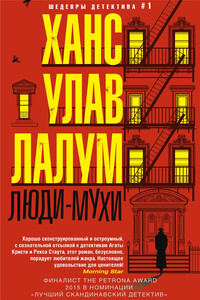
Убит бывший лидер норвежского Сопротивления и бывший член кабинета министров Харальд Олесен. Его тело обнаружено в запертой квартире, следов взлома нет, орудие убийства отсутствует. На звук выстрела к двери Олесена сбежались все соседи, но никого не увидели. Инспектор уголовного розыска Колбьёрн Кристиансен считает, что убийство, скорее всего, совершил кто-то из них. Более того, он полагает, что их показания лживы.
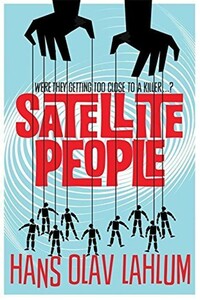
A gripping, evocative, and ingenious mystery which pays homage to Agatha Christie, Satellite People is the second Norwegian mystery in Hans Olav Lahlum's series. Oslo, 1969: When a wealthy man collapses and dies during a dinner party, Norwegian Police Inspector Kolbjorn Kristiansen, known as K2, is left shaken. For the victim, Magdalon Schelderup, a multimillionaire businessman and former resistance fighter, had contacted him only the day before, fearing for his life. It soon becomes clear that every one of Schelderup's 10 dinner guests is a suspect in the case.
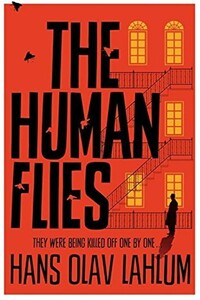
Oslo, 1968: ambitious young detective Inspector Kolbjorn Kristiansen is called to an apartment block, where a man has been found murdered. The victim, Harald Olesen, was a legendary hero of the Resistance during the Nazi occupation, and at first it is difficult to imagine who could have wanted him dead. But as Detective Inspector Kolbjorn Kristiansen (known as K2) begins to investigate, it seems clear that the murderer could only be one of Olesen's fellow tenants in the building. Soon, with the help of Patricia – a brilliant young woman confined to a wheelchair following a terrible accident – K2 will begin to untangle the web of lies surrounding Olesen's neighbors; each of whom, it seems, had their own reasons for wanting Olesen dead.
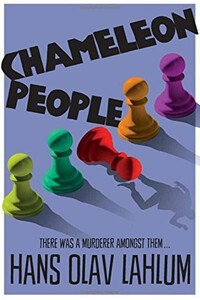
From the international bestselling author, Hans Olav Lahlum, comes Chameleon People, the fourth murder mystery in the K2 and Patricia series.1972. On a cold March morning the weekend peace is broken when a frantic young cyclist rings on Inspector Kolbjorn 'K2' Kristiansen's doorbell, desperate to speak to the detective.Compelled to help, K2 lets the boy inside, only to discover that he is being pursued by K2's colleagues in the Oslo police. A bloody knife is quickly found in the young man's pocket: a knife that matches the stab wounds of a politician murdered just a few streets away.The evidence seems clear-cut, and the arrest couldn't be easier.
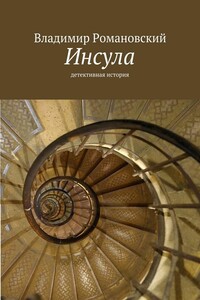
Детективная история, произошедшая в Санкт-Петербурге. Обычные люди в необычных обстоятельствах. Любовь, ненависть, жадность, драки и власть.
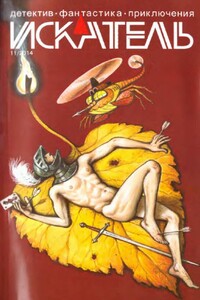
«ИСКАТЕЛЬ» — советский и российский литературный альманах. Издаётся с 1961 года. Публикует фантастические, приключенческие, детективные, военно-патриотические произведения, научно-популярные очерки и статьи. В 1961–1996 годах — литературное приложение к журналу «Вокруг света», с 1996 года — независимое издание.В 1961–1996 годах выходил шесть раз в год, в 1997–2002 годах — ежемесячно; с 2003 года выходит непериодически.Содержание:Анатолий Королев ПОЛИЦЕЙСКИЙ (повесть)Олег Быстров УКРАДИ МОЮ ЖИЗНЬ (окончание) (повесть)Владимир Лебедев ГОСТИ ИЗ НИОТКУДА.
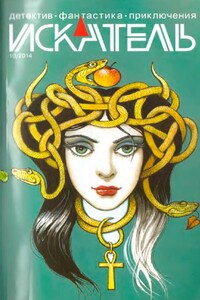
«ИСКАТЕЛЬ» — советский и российский литературный альманах. Издается с 1961 года. Публикует фантастические, приключенческие, детективные, военно-патриотические произведения, научно-популярные очерки и статьи. В 1961–1996 годах — литературное приложение к журналу «Вокруг света», с 1996 года — независимое издание.В 1961–1996 годах выходил шесть раз в год, в 1997–2002 годах — ежемесячно; с 2003 года выходит непериодически.Содержание:Олег Быстров УКРАДИ МОЮ ЖИЗНЬ (повесть);Петр Любестовский КЛЕТКА ДЛЯ НУТРИИ (повесть)
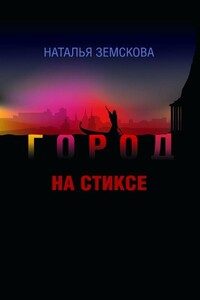
Наталья Земскова — журналист, театральный критик. В 2010 г. в издательстве «Астрель» (Санкт-Петербург) вышел её роман «Детородный возраст», который выдержал несколько переизданий. Остросюжетный роман «Город на Стиксе» — вторая книга писательницы. Молодая героиня, мечтает выйти замуж и уехать из забитого новостройками областного центра. Но вот у неё на глазах оживают тайны и легенды большого губернского города в центре России, судьбы талантливых людей, живущих рядом с нею. Роман «Город на Стиксе» — о выборе художника — провинция или столица? О том, чем рано или поздно приходится расплачиваться современному человеку, не верящему ни в Бога, ни в черта, а только в свой дар — за каждый неверный шаг.
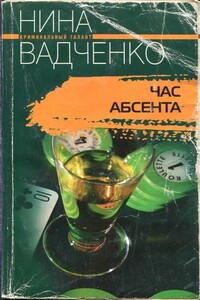
А ведь все так невинно начиналось! Четыре подружки коротали вечерок с бутылочкой «зеленого дьявола» и вели милую дамскую беседу о том… как бы им «грамотно» отправить на тот свет ненавистного шефа. Почему бы не помечтать о приятном в теплой дружеской компании? Все бы ничего, да только шефа вскоре действительно нашли мертвым, к тому же кто-то снял на видео посиделки четырех любительниц абсента. Впрочем, они и сами друг друга теперь подозревают. И распутать этот клубок противоречий по силам только их старой знакомой, неугомонной журналистке Инне Пономаренко…
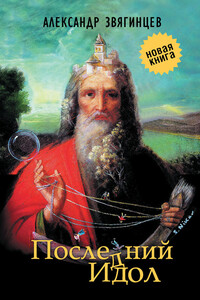
В сборник «Последний идол» вошли произведения Александра Звягинцева разных лет и разных жанров. Они объединены общей темой исторической памяти и личной ответственности человека в схватке со злом, которое порой предстает в самых неожиданных обличиях. Публикуются рассказы из циклов о делах следователей Багринцева и Северина, прокуроров Ольгина и Шип — уже известных читателям по сборнику Звягинцева «Кто-то из вас должен умереть!» (2012). Впервые увидит свет пьеса «Последний идол», а также цикл очерков писателя о событиях вокруг значительных фигур общественной и политической жизни России XIX–XX веков — от Петра Столыпина до Солженицына, от Александра Керенского до Льва Шейнина.